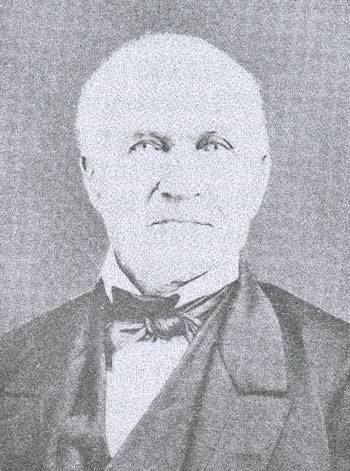13 Sep On This Day in UB History: September 13 (Henry Spayth)

George Henry Spayth
Henry Spayth was born on September 13, 1788, in Germany, not all that far from William Otterbein’s old stomping grounds. He was three years old when his parents emigrated to America, probably settling in Maryland. It is thought that he became a Christian through George Geeting, the most influential early UB after Otterbein and Martin Boehm. His name first appears on United Brethren rolls in 1812 as a minister in Maryland and Virginia. He probably knew all of those early leaders.
Spayth played a significant role in the crucial 1815 General Conference. With the founders gone, the ministers spent the first two days awash in discord and harsh words. Finally, Henry Spayth–27 years old, and wise beyond his years–stood and addressed the ministers. They halted everything and held what was described as “such a prayer meeting your humble servant never witnessed before nor since. Brethren with streaming eyes embraced and thanked God.” After that, things went fine. Like night and day.
It was written that from 1815-1845, Spayth did more than anybody else to shape how the United Brethren church operated–its polity. He had that kind of mind. He was well-read, with a broad knowledge (including medicine and history), and had a commanding presence from which he could deploy logic and eloquence to influence people. He had a way of diplomatically bringing diverging factions together.
It helped that Spayth was fluent in both German and English. The westward expansion, which Spayth joined, was almost entirely among English-speaking people. He no doubt attracted English-speaking ministers to the cause.
Spayth is remembered most for writing our first history book, a task given to him by the 1845 General Conference. The book was published in 1851, in English, under the title, “History of the Church of the United Brethren in Christ.”
In 1815, Spayth married and moved to western Pennsylvania, around Pittsburgh. In 1817, he helped organized the Muskingum Conference of eastern Ohio and western Pennsylvania. He later moved on to Tiffin, Ohio, where he spent the remainder of his life.
The United Brethren church might have fractured at that discordant 1815 conference, if not for Henry Spayth’s intervention. Imagine what Spayth witnessed during the next 60 years–the denomination expanding from coast to coast, weathering several wars, establishing a foothold in Africa, and starting a publishing house, colleges, and a seminary. By the time Spayth died on September 2, 1873, the church had grown to over 125,000 members.
Spayth saw so much. And he lived to write about it.

No Comments